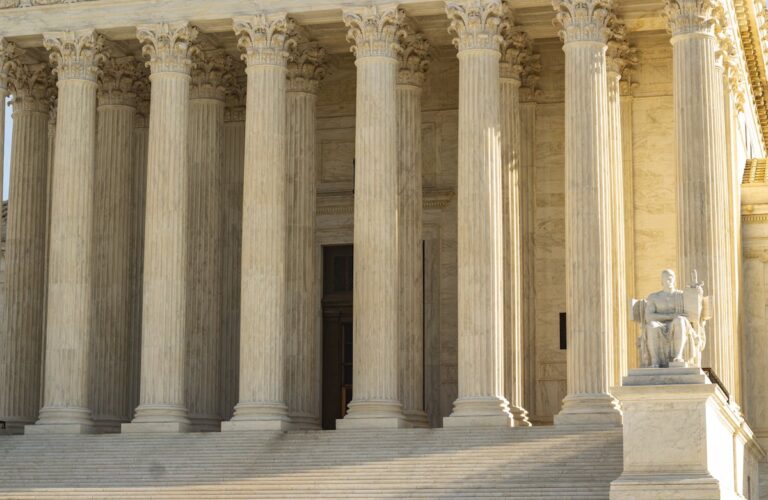Starbucks Settles Overtime Lawsuit for $1.6 Million
Recently, Starbucks Corporation agreed to a $1.6 million settlement, resolving a longstanding lawsuit regarding unpaid overtime claims dating back to 2014. The implications of this settlement are significant, not only addressing the immediate needs of the aggrieved employees, but also prompting a revision of Starbucks’ payroll practices. This case underscores the importance of companies’ compliance with labor laws. It also raises pertinent questions about potential ripple effects on wage policies within the wider food and beverage industry. Indeed, one might wonder what precedents this could set for future labor disputes.
Background of the Starbucks Lawsuit
The genesis of the Starbucks overtime lawsuit, a contentious legal battle, can be traced back to 2014. Initiated by Starbucks employees, this lawsuit stemmed from allegations of widespread failure to compensate employees for overtime work, a fundamental violation of employee rights. The case highlighted the ongoing struggle for wage fairness within the service industry, which often grapples with labor rights issues.
The lawsuit was a significant event, not only for Starbucks, but for the broader landscape of labor disputes. It served as a stark reminder that large corporations are not immune to scrutiny when it comes to protecting and upholding the rights of their workers. Starbucks, a multinational corporation renowned for its progressive stance on employee benefits, found itself at the center of a heated legal battle concerning wage fairness and overtime compensation.
As the case unfolded, it revealed systemic wage and hour issues prevalent within the company. The crux of the dispute was based on the premise that Starbucks had not adhered to state and federal laws regarding overtime pay, thereby infringing on the rights of their employees, and setting a worrying precedent for labor rights in the corporate world.
Details of the Alleged Overtime Violations
The alleged overtime violations in the Starbucks lawsuit revolve around specific claims made against the coffee giant. Starbucks, in response to these allegations, undertook a legal course of action to address the concerns raised. This led to a settlement, the terms of which provide a thorough overview of the resolution to this dispute.
Allegations Against Starbucks
How did a reputable coffee giant like Starbucks find itself in the middle of an overtime lawsuit? The answer lies in an alleged violation of employee rights, particularly concerning overtime wages. This lawsuit, brought forth by the employees, centered around claims of unpaid overtime, painting a picture of workplace fairness concerns.
In their allegations, the employees accused Starbucks of failing to compensate them for the overtime hours they worked. The Fair Labor Standards Act mandates that employers must pay their employees one and a half times their regular rate for any hours worked beyond the standard 40-hour workweek. However, the employees claimed that Starbucks had not adhered to this rule.
The issue of workplace fairness was further highlighted by allegations that Starbucks had implemented a system which automatically rounded down the hours worked by employees. This practice allegedly resulted in workers receiving less pay than they were entitled to. If these allegations hold true, it suggests a breach of trust between the company and its workforce, and a disregard for the rights of the employees. This lawsuit underlines the importance of businesses maintaining compliance with employment laws to promote workplace fairness and protect employee rights.
Starbucks’ Legal Response
Facing the allegations of unpaid overtime and improper wage calculations, Starbucks mounted a legal defense to challenge these claims. The company utilized a range of legal strategies to counter the accusations, with its attorneys arguing that the workers were not entitled to the payments they claimed. They contended that Starbucks had followed all legal norms and regulations regarding wage calculation and overtime compensation.
The defense centered on the interpretation of labor laws, particularly the method used to calculate overtime. Starbucks insisted that its compensation practices were in full compliance with the law. The corporation’s legal team also pointed to the company’s thorough employee training and information programs, arguing that employees were well informed about their rights and the company’s policies.
As part of its legal response, Starbucks also emphasized its commitment to corporate accountability. The company stated that it consistently endeavors to maintain high ethical standards in all business practices, including employee compensation. It pledged to continue this commitment regardless of the lawsuit’s outcome, affirming its dedication to its employees and to maintaining its strong reputation for corporate responsibility.

Settlement Terms Overview
Under the terms of the settlement, Starbucks agreed to pay a significant sum to resolve the allegations of overtime violations. The global coffee giant, facing claims for unpaid overtime, has agreed to a $1.6 million settlement that aims to rectify the alleged violations of labor laws.
The settlement benefits are manifold and primarily intended to compensate employees who were allegedly denied overtime pay. The settlement terms necessitate that Starbucks not only compensate affected employees monetarily, but also make amendments to its payroll practices to prevent future overtime violations. It is a significant victory for employees who have been fighting for their rightful compensation.
The employee compensation component of the settlement is a clear indicator of Starbucks’ commitment to rectifying the alleged wrongs. The compensation is designed to cover both unpaid overtime and any related damages, thereby restoring employees to the financial position they would have been in had the alleged overtime violations not occurred.
Starbucks’ willingness to settle is a remarkable step towards ensuring fair labor practices. The settlement serves as a reminder to corporations of their obligations to comply with labor laws and underscores the importance of adequate employee compensation.
Starbucks’ Response to the Allegations
In response to the allegations of overtime violations, Starbucks promptly took corrective measures to address the issues raised. The company not only acknowledged the wage infractions but also implemented significant changes to prevent future occurrences. The next section will provide a detailed analysis of Starbucks’ proactive actions and the subsequent amendments made to its policy.
Addressing Wage Violations
The issue of wage violations has been met head-on by Starbucks, a company known for its attention to employee welfare. In response to the allegations, Starbucks has made it clear that they value wage fairness and employee rights, which are fundamental to their business operations.
Starbucks has taken several steps to address the concerns raised, including:
- Immediate settlement of the lawsuit, demonstrating their commitment to resolving the issue quickly and fairly.
- An internal review of their wage practices, to guarantee compliance with labor laws.
- Open communication with their employees to address any concerns and to reinforce the company’s dedication to fair work practices.
- A promise to take necessary action to prevent future wage violations.
Starbucks’ response to the allegations of wage violations speaks volumes about their dedication to their workforce. They have not only taken responsibility for the issue, but have also shown a commitment to making things right. This approach reflects Starbucks’ emphasis on wage fairness and employee rights, which they believe are essential for a harmonious and productive working environment. The company’s swift and thorough response is a reflection of their dedication to maintaining trust and transparency with their employees.
Implementing Future Changes
Recognizing the need for systemic changes, Starbucks has responded proactively to the allegations of wage violations. The coffee giant has committed to a thorough plan of action to prevent future instances of similar issues. Central to this plan are policy revisions and a renewed emphasis on employee training.
Starbucks is undertaking a detailed revision of its wage policies to guarantee complete clarity and compliance with labor laws. The revised policies aim to eradicate any ambiguities that could potentially lead to wage violations. The focus is on establishing clear guidelines for overtime compensation, break periods, and other wage-related matters, guaranteeing all employees are treated fairly and consistently.
In conjunction with policy revisions, Starbucks is ramping up its employee training programs. The objective is to make sure that every team member, especially those in supervisory roles, understands the updated policies thoroughly. This will involve training on wage and hour laws, overtime regulations, and the proper procedures for reporting and rectifying potential violations. The company believes that this two-pronged approach of policy revision and enhanced training will greatly reduce the likelihood of future wage disputes, demonstrating Starbucks’ commitment to its employees and adherence to employment laws.
The Settlement’s Impact on Starbucks
Unforeseen ripples of change are beginning to surface at Starbucks as a result of the recent overtime lawsuit settlement. The financial implications of this settlement are significant, but the impact extends beyond the immediate monetary value. This development brings to light the importance of employee relations, which are now at the forefront of the company’s concerns.
The settlement implications can be categorized into various areas:
- Financial Impact: With the company having to pay $1.6 million, there’s a direct impact on its financial standing. This could potentially influence future business strategies and decisions.
- Employee Relations: The lawsuit has highlighted the need for improved employee relations. Starbucks will need to reassess its overtime policies to guarantee they are fair and lawful.
- Reputation Management: The lawsuit has certainly affected Starbucks’ reputation. The company will need to work on rebuilding trust and maintaining transparency.
- Policy Revision: Starbucks may need to revise its employment policies, guaranteeing they align better with labor laws. This could lead to a more positive working environment for employees.
While steering through these changes, Starbucks must also prepare for potential industry-wide implications, guaranteeing the brand maintains its position as a leader in the food and beverage sector.
Implications for the Food and Beverage Industry
Beyond the immediate impact on Starbucks, this overtime lawsuit settlement sets a significant precedent for the whole food and beverage industry. It stands as a potent reminder of the legal and financial consequences that can ensue if industry standards concerning overtime pay are not strictly adhered to.
This case underlines the importance of employee advocacy in maintaining industry standards and guaranteeing fair treatment of workers. Employee advocacy groups, often the initiators of such lawsuits, serve as a powerful voice for employees who may otherwise be reticent about voicing their concerns regarding overtime pay or other aspects of their employment conditions.
The food and beverage industry, characterized by long hours and often slim margins, is particularly susceptible to overtime disputes. The Starbucks settlement could thus stimulate a reevaluation of current practices across the industry. Companies may now be more inclined to invest in compliance systems to guarantee they are meeting industry standards for overtime pay, thereby reducing their exposure to costly lawsuits.
What This Means for Labor Rights
The Starbucks overtime lawsuit settlement has far-reaching implications, particularly in the domain of labor rights. It serves as a significant example of the increasing trend towards labor advocacy and the enforcement of employee rights, especially in industries known for demanding work schedules.
The settlement can be seen as a victory for labor rights in several ways:
- Demonstrates the power of collective action: The lawsuit was possible because of the collective action of Starbucks employees standing up for their rights.
- Sets a precedent: This case can serve as a benchmark for future overtime lawsuits, providing a reference point for similar disputes.
- Promotes labor advocacy: The visibility of this lawsuit helps to raise awareness for the importance of labor advocacy, encouraging more workers to fight for their rights.
- Encourages companies to respect employee rights: The financial impact of the settlement might push other companies to reconsider their overtime policies, thereby preventing future lawsuits.
The settlement is a reminder that no company, regardless of its size or influence, is above the law. It underscores the significance of labor rights in maintaining a fair and just work environment.
Frequently Asked Questions
How Will the Settlement Affect Starbucks Stock Prices?
The impact of the settlement on Starbucks’ stock prices will hinge on the stock market reaction and investor sentiment. While some volatility may be expected, thorough financial strength could mitigate significant long-term effects.
Will Starbucks Change Its Overtime Policies Following the Lawsuit?
It is plausible for Starbucks to reconsider its overtime policies following the lawsuit, to safeguard employee rights and avoid future legal disputes. However, any official confirmation or details of such changes remain undisclosed at this time.
What Is Starbucks History Regarding Labor Rights Lawsuits?
Starbucks’ history with labor rights lawsuits is not pristine. They’ve faced several allegations over the years, including wage and hour violations. These cases highlight the ongoing struggle for improved labor conditions in the retail industry.
Are Other Major Coffee Chains Facing Similar Labor Rights Issues?
Yes, labor rights issues are not exclusive to Starbucks. Other major coffee chains, such as Dunkin’ Donuts and Tim Hortons, have also faced similar lawsuits in the past, indicating a broader problem in the coffee industry.
Will the Settlement Influence the Working Conditions at Other Starbucks Locations Globally?
This unprecedented settlement could indeed prompt a global labor overhaul, potentially raising workplace standards at Starbucks locations worldwide, as the company works to prevent similar costly legal issues in the future.






